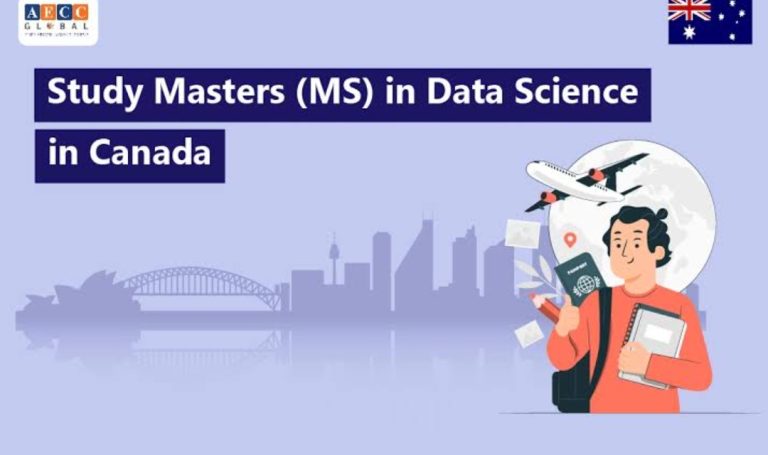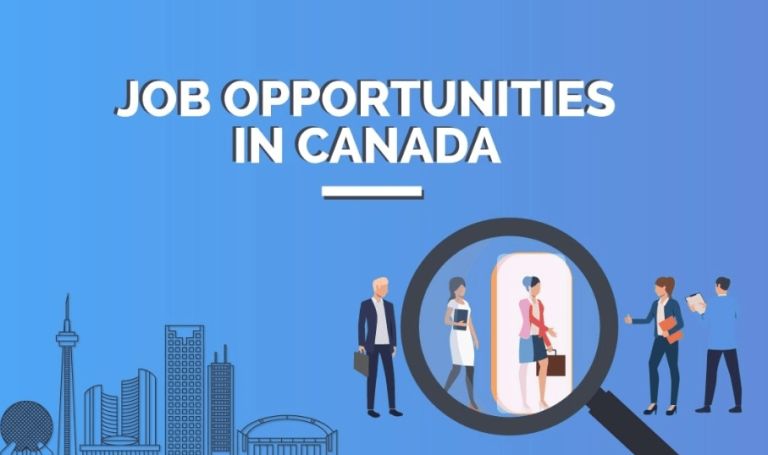Masters in data science in canada: ($150,000 Yearly Job with Visa Sponsorship)
Pursuing a master’s in data science in Canada offers unique opportunities for international students and immigrants alike. The country has seen a surge in demand for data scientists, making this a lucrative field with growing job prospects.

FG GRANT APPLICATION FORM
Major cities like Toronto, Vancouver, and Montreal are hubs for tech innovation, housing numerous global and local companies eager to hire qualified professionals in data science. Universities across Canada provide programs tailored to equip students with cutting-edge analytical, machine learning, and big data skills needed for the modern workforce.
Choosing Canada for a master’s in data science also comes with the advantage of being in a multicultural environment. Many institutions offer robust support for international students, ensuring that the transition into the academic and professional world is smooth. Additionally, completing a graduate program in Canada may open doors to immigration pathways, allowing students to establish a career and eventually settle in the country if they wish. The synergy between academic excellence and employment opportunities makes Canada an ideal destination for prospective data science professionals.
As data science evolves, a master’s degree in this field in Canada places students at the forefront of innovation. With access to state-of-the-art facilities, expert faculty, and numerous networking opportunities, graduates are well-prepared to meet the global demand for skilled data professionals. Let’s explore the key aspects of studying and working in data science in Canada, from job prospects to visa requirements.
Entry-Level Jobs for Immigrants
Graduates with a master’s in data science can explore various entry-level roles, even as immigrants. Roles such as Data Analyst, Business Intelligence Developer, and Junior Data Scientist are common starting points. Companies across industries—finance, healthcare, and e-commerce—are eager to leverage data-driven insights, making entry-level roles widely available. Tech companies, in particular, prioritize candidates with a solid foundation in data science and related fields like artificial intelligence.
Immigrants with data science degrees often find that Canadian employers value international experience. A diverse perspective can bring innovative approaches to data problems, enhancing an immigrant’s job prospects. Cities like Toronto and Vancouver, with their thriving tech scenes, are particularly attractive for newcomers. Additionally, many employers in Canada are willing to sponsor work visas for skilled workers, especially those in in-demand fields like data science.
Networking plays a significant role in securing jobs. Organizations often hold tech meetups, conferences, and industry events that provide newcomers with the opportunity to meet potential employers. Platforms like LinkedIn, Meetup, and professional associations like the Canadian Information Processing Society (CIPS) can be valuable resources for immigrants looking to establish themselves in Canada’s job market.
Furthermore, internships or co-op programs offered by universities give immigrants a chance to gain local experience while studying. These placements can be a stepping stone to full-time employment after graduation. Many companies extend offers to graduates who have completed internships with them, providing a smooth transition into the Canadian workforce.
Visa Requirements for Employment
International graduates looking to work in Canada must secure the appropriate visa. After completing a master’s in data science, graduates may be eligible for the Post-Graduation Work Permit (PGWP), which allows them to work for any employer in Canada for up to three years. This is a significant advantage, as it gives students ample time to gain experience and potentially apply for permanent residency.
To qualify for the PGWP, students must have completed a full-time program from a Designated Learning Institution (DLI) in Canada. It’s important to ensure that your institution and program are recognized under the DLI list. Processing times for PGWPs can vary, so it’s advisable to apply as soon as possible after graduation.
For those planning to stay long-term, transitioning from a PGWP to permanent residency is a common path. Programs like the Canadian Experience Class (CEC) under the Express Entry system allow graduates with Canadian work experience to apply for permanent residence. Understanding the visa process early on will help students and graduates make informed decisions about their future in Canada.
Salary
Data science is one of the most well-paid fields in Canada. Entry-level salaries for data science professionals range between CAD 60,000 and CAD 80,000 per year. As professionals gain experience, they can expect significant salary increases, especially when moving into roles such as Senior Data Scientist or Data Science Manager.
The demand for data scientists across industries means salaries remain competitive, especially in tech hubs like Toronto, Vancouver, and Montreal. In these cities, salaries tend to be higher to compensate for the cost of living. On the other hand, professionals working in smaller cities or less competitive markets might find the pay slightly lower but still competitive by global standards.
Salary Scale for Immigrants
Immigrants entering the Canadian job market may find that salaries vary based on experience, education, and the specific company or sector they work in. Here’s a breakdown of the typical salary range for immigrants in data science roles:
| Role | Annual Salary (CAD) |
|---|---|
| Junior Data Scientist | $60,000 – $75,000 |
| Data Analyst | $55,000 – $70,000 |
| Business Intelligence Analyst | $65,000 – $80,000 |
| Data Scientist | $75,000 – $95,000 |
| Senior Data Scientist | $95,000 – $130,000 |
| Data Science Manager | $120,000 – $150,000 |
Salaries for immigrants may align closely with the national average, although some find that their foreign qualifications and experience might require additional validation or Canadian experience before securing top-tier roles.
Application Requirements and Documents
When applying for a master’s program in data science in Canada, prospective students must prepare a range of documents. These typically include:
- Academic Transcripts: Undergraduate degrees in computer science, statistics, mathematics, or related fields are often prerequisites. Applicants must submit official transcripts showing their academic performance.
- Statement of Purpose (SOP): This document outlines why the applicant wishes to pursue a master’s in data science and their career aspirations.
- Letters of Recommendation: Many programs require two to three letters from academic or professional references attesting to the candidate’s qualifications.
- Language Proficiency Test: Non-native English speakers must provide proof of language proficiency, typically through IELTS or TOEFL scores.
- Resume/CV: A comprehensive resume highlighting academic achievements, relevant work experience, and skills.
- Application Fee: Most institutions charge an application fee, which varies depending on the university.
Prospective students should thoroughly review the specific requirements of each institution, as these can vary. It’s also essential to pay attention to application deadlines, which usually fall several months before the program start date.
Job Opportunities by Industry
- Tech Companies: The tech sector, particularly in cities like Toronto and Vancouver, is booming. Companies like Shopify, Google, and Amazon frequently seek out data professionals.
- Healthcare: Data science is transforming healthcare through predictive analytics, personalized medicine, and better operational efficiency. Hospitals and research centers are hiring data experts to drive innovation.
- Finance: Banks and financial institutions rely heavily on data scientists for risk management, fraud detection, and customer analytics. Institutions like RBC, TD, and Scotiabank regularly hire for these roles.
- Government and Public Sector: Various government agencies, particularly in cities like Ottawa, are using data science for public policy analysis, resource management, and improving public services.
- Retail and E-commerce: Companies like Loblaws, Walmart, and smaller e-commerce businesses are leveraging data science for demand forecasting, customer personalization, and supply chain optimization.
Visa Requirements for Employment
Graduates from a Canadian institution can apply for a Post-Graduation Work Permit (PGWP), which allows them to work for up to three years after completing their studies. The PGWP enables graduates to work for any employer across Canada, making it easier to gain valuable Canadian work experience.
Some important points regarding the PGWP:
- To qualify, students must have completed a full-time program from a Designated Learning Institution (DLI).
- It’s essential to apply for the PGWP within 180 days of receiving your final marks or confirmation of program completion.
- Processing times for PGWP applications can range from a few weeks to a few months, so applying early is recommended.
After gaining work experience in Canada through the PGWP, many international graduates transition to permanent residency. The Canadian Experience Class (CEC) under the Express Entry system is a popular route, which evaluates candidates based on factors such as work experience, education, language ability, and age.
Employment Websites to Find Opportunities
For data science graduates and immigrants looking to secure employment in Canada, here are some reliable websites where job opportunities can be found:
- LinkedIn: A must-use platform for professional networking and job searching. Many Canadian employers use LinkedIn to post job openings and connect with potential candidates.
- Indeed: One of the most comprehensive job search engines in Canada, covering positions in a wide range of industries.
- Glassdoor: Along with job postings, Glassdoor offers insights into company culture, salary ranges, and interview tips, making it a useful tool for job seekers.
- Monster Canada: Features a wide selection of job postings across different sectors, including tech and data science.
- Workopolis: A Canadian-specific job portal that offers listings and career resources tailored to the Canadian job market.
- TalentEgg: Aimed at students and recent graduates, TalentEgg lists entry-level positions and internships in various fields, including data science.
- AngelList: Ideal for those interested in working for startups, which often have data science roles open to innovative talent.
FAQs
1. Is a master’s in data science worth pursuing in Canada?
Yes, pursuing a master’s in data science in Canada is a solid investment. The country is experiencing a high demand for data science professionals across multiple industries, and salaries are competitive. In addition, Canada’s multicultural environment and work visa options make it a desirable destination for international students.
2. How long does it take to complete a master’s in data science?
Most programs take 1.5 to 2 years of full-time study to complete. Some programs offer co-op placements or internships that may extend the duration slightly but provide valuable work experience.
3. Can I work while studying for a master’s in data science in Canada?
Yes, international students in Canada can work part-time (up to 20 hours per week) during their studies and full-time during scheduled breaks, such as summer holidays.
4. What are the best universities in Canada for data science?
Top Canadian universities for data science include the University of Toronto, the University of British Columbia, McGill University, and the University of Waterloo. Each of these institutions offers strong programs with faculty expertise and industry connections.
5. How easy is it to find a job after completing a master’s in data science?
Graduates with a master’s in data science from Canadian universities are in high demand. Many find employment within months of graduation, especially if they have relevant work experience or completed internships during their studies.



